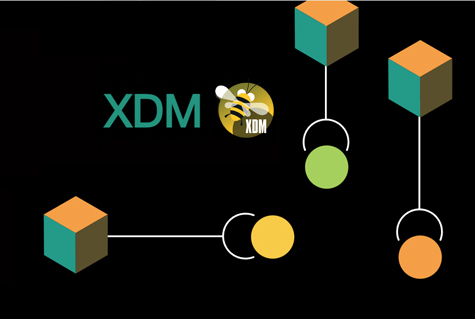The significance of high-quality test data has increased considerably in recent times. Two decades ago, IT operations mostly remained in the background. The software-assisted conversation between a customer and an insurance broker or bank advisor was conducted, and the computer was operated by them. The customer didn’t have any direct interaction with the software that worked in the background. If there were any IT-related errors, a human intermediary was still present to compensate for them. Other areas, such as online shopping, either didn’t exist or were in their early stages of development.
Processing entire business transactions directly
The role of IT in our daily lives has undergone significant shifts. Consumer habits have changed, with users interacting with more user interfaces, and IT services being utilized directly by end customers. The range of applications that IT services are used for has increased significantly, including online banking, filing tax returns, shopping online, and dealing with government agencies.
Consequently, businesses that wish to succeed must acknowledge that new sales channels and infrastructure rules have emerged. Insurance companies, banks, and food retailers are examples of businesses that have shifted their operations online and now provide customers with IT platforms to conduct transactions. The zero tolerance for errors on these platforms, which are operated directly by the end customer, means that well-functioning IT systems have become more critical to business success than ever before. Furthermore, applications have become more complex, with consumers now processing entire business cases, indicating the importance of high-quality software, testing, and test data management.
The pace of progress and innovation is constantly increasing
As we move forward, the pace of innovation has accelerated significantly and the expectations for it have gone up. Companies that want to launch a new product nowadays must be able to provide an IT version of it almost immediately. In response to this need for rapid development, we have the concept of continuous development. It involves an agile approach to development and incremental deployment, which means that existing IT solutions are developed and delivered in a step-by-step, continuous manner. This process also includes continuous testing, which is no longer considered an additional phase but is now an integral part of the overall strategy. In other words, testing is part of every incremental step.
Having adequate test data is essential for any development process
In today’s fast-paced world, quality criterion and speed of innovation go hand-in-hand. Therefore, the importance of high-quality test data is increasing day by day. It is crucial to ensure that the newly developed application meets all the quality criteria. This is where UBS-Hainer’s test data automation comes into play. To achieve the project’s quality goals, acquiring high-quality test data is a must.
However, this process should be as efficient, flexible, and straightforward as possible. This is where the comprehensive TDM tool XDM from UBS-Hainer comes in handy. With XDM, you can define fully automated, repeatable procurement processes that can be controlled by everyone. This enables developers to get high-quality data quickly without relying on technical experts.
Data security and the GDPR
When it comes to test data, one important criterion is that it should closely resemble the actual production data for high-quality results. This requires preserving all the relationships and interdependencies between records and tables while ensuring compliance with GDPR regulations. Today, there are clear expectations from both the legislators and the customers regarding how such data should be handled. When using test data from production or production-related areas, it must be anonymized and able to be deleted while complying with the law. The GDPR requirements alone call for a professionally organized test data management system.
Simply copying test data from production is not enough to meet all these requirements in the context of continuous development. To compete in the market and deliver software with fewer bugs, a well-thought-out TDM system like XDM from UBS-Hainer can help optimize and adapt the test data acquisition processes while keeping all the components in sync.


